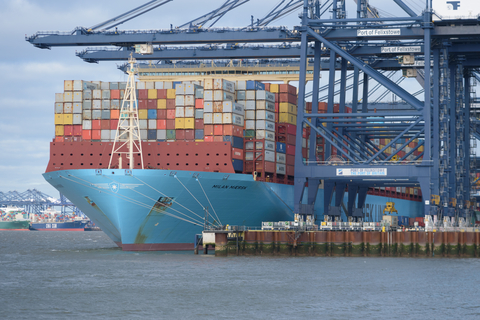
In a recent development, major shipping companies like Denmark’s Maersk and Germany’s Hapag-Lloyd have announced the continued avoidance of the Red Sea route, a crucial passage for accessing the Suez Canal. The decision follows a weekend attack on one of Maersk’s vessels by Yemen-based Houthi militants. The ripple effects of these disruptions pose significant challenges for global shipping, fears of global inflation, and impacts on various industries.
The Incident and Response
Maersk temporarily halted all Red Sea sailings for 48 hours after Houthi militants attempted to board the Maersk Hangzhou. U.S. military helicopters successfully repelled the assault, but the incident prompted both Maersk and Hapag-Lloyd to reroute some sailings through Africa’s southern Cape of Good Hope.
Maersk’s statement noted an ongoing investigation into the incident, with a commitment to pausing cargo movement through the affected area while assessing the evolving situation. Vessels will be routed based on the most sensible approach for customers.
Scale of Disruption
Maersk had over 30 container vessels scheduled to sail through the Suez via the Red Sea, as indicated by an advisory on Monday. Additionally, 17 other voyages were put on hold. Hapag-Lloyd announced that its vessels would continue to divert away from the Red Sea, sailing instead via Africa’s southern tip, until at least January 9.
Economic Implications
The Suez Canal, utilized by roughly one-third of global container ship cargo, plays a pivotal role in international trade. Rerouting ships around the southern tip of Africa is estimated to cost up to $1 million in extra fuel for every round trip between Asia and norther Europe. Concerns about potential disruption to Middle Eastern supply have already driven up oil prices in the first trading session of 2024.
Industry Response and Impact on Freight Rates
Shipping companies, anticipating higher freight rate due to longer routes, have seen an increase in their shares since the crisis began. Maersk’s shares were up to 6.3% and Hapag-Lloyd’s shares were up 5% in late afternoon trading.
The French shipping group CMA CGM has also responded to the situation by announcing an increase in container shipping rates from Asia to the Mediterranean region by up to 100% as of January 15, compared to rates at the beginning of the year.
Impact on Specific Trade Routes
For the Asia to North America (TPEB) trade route, recent developments include general rates increases on January 1 and the imposition of new surcharges on transits through the drought-hit Panama Canal. Eastbound services from Asia face challenges due to the indefinite withdrawal of ships from transiting the Suez Canal, leading to longer transits, increased rated, and tightened capacity on weekly services.
In all, as the global shipping industry grapples with the aftermath of the Red Sea attacks, companies are forced to adapt their routes, leading to increased costs and potential delays. The ongoing situation highlights the vulnerability of key maritime routes and the need for strategic planning to mitigate risks in an increasingly complex geopolitical landscape. The industry will closely monitor developments, with a focus on finding solutions to navigate these challenges and maintain the efficiency of global supply chains.
